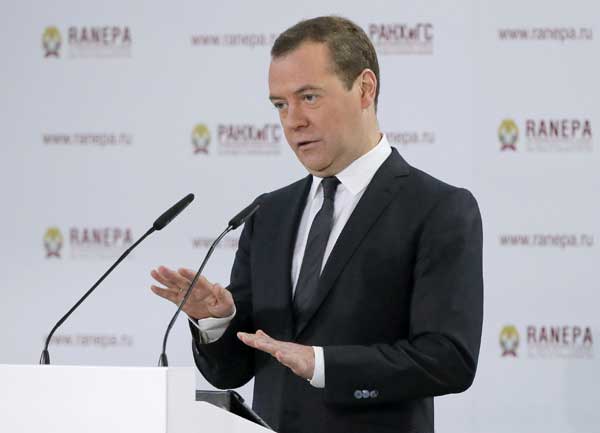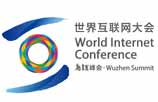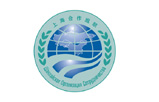Russia faces more economic difficulties ahead, but to weather challenges: Russian PM
(Xinhua) Updated: 2016-01-14 02:38
 |
|
Russia's Prime Minister Dmitry Medvedev delivers a speech during a session of the Gaidar Forum 2016 'Russia and the World: Looking to the Future' in Moscow, Russia, January 13, 2016. [Photo/Agencies] |
MOSCOW -- Russia's economy faces new challenges this year due to low oil prices and economic sanctions, but it has all the necessary conditions to get out of the crisis, Prime Minister Dmitry Medvedev said Wednesday.
"Despite all the difficulties experienced by the Russian economy, we have the reserves, desire and will to overcome them," Medvedev told the annual Gaidar Forum, which has brought together leading politicians, scientists and businessmen.
2015 was probably the hardest year for Russia in the last decade, he said, adding that the plunge of prices of oil, an important source of the country's revenues, was aggravated by economic sanctions imposed by Western countries.
Against this background, Russia's own structural problems have worsened. There was an evident deficit of sources of economic growth and export revenues other than the raw material sector, which resulted in a decline of production volumes, business and investment activities, said Medvedev.
However, he stressed that the situation in the economy is complicated but manageable, citing that Russia was one of the 10 countries with lowest foreign debt and biggest gold and currency reserves, as well as a stable banking sector, which he said would enable the country to take the "most energetic measures" to overcome the difficulties and continue to help key enterprises in a host of sectors.
He urged the country to stop relying only on gas and oil revenues, and to get ready to adjust its budget parameters if oil prices kept falling.
"The basic principle of our policy will remain the same: we must live within our income," he said.
This means budget cuts, primarily of government spending, and privatization of some state assets, he added.
Meanwhile, Medvedev said the government would continue its policy of import substitution, a self-imposed response to Western sanctions.
Russia will also expand cooperation with the Eurasian Economic Union and seek setting up free trade zones with members of the Shanghai Cooperation Organization and the Association of Southeast Asian Nations, Medvedev said.
As to relations with the European Union, Medvedev said Moscow was also hoping to restore normal interaction with the bloc.
"Europe is our close neighbor and an important economic partner in spite of the lamentable sanctions. I believe the common sense prevails and sanctions will become history, while our relations will go back to normal," he said.
- Manzhouli land port exports fresh pears to Russia
- RMB cash demand grows in Russia
- Russia takes restrictive measures against Ukraine, Turkey
- Miss China-Russia-Mongolia contest concludes in Manzhouli
- Russia, India vow to enhance military, nuclear, anti-terror cooperation
- Russia provides France with proof of Turkey's support for IS






